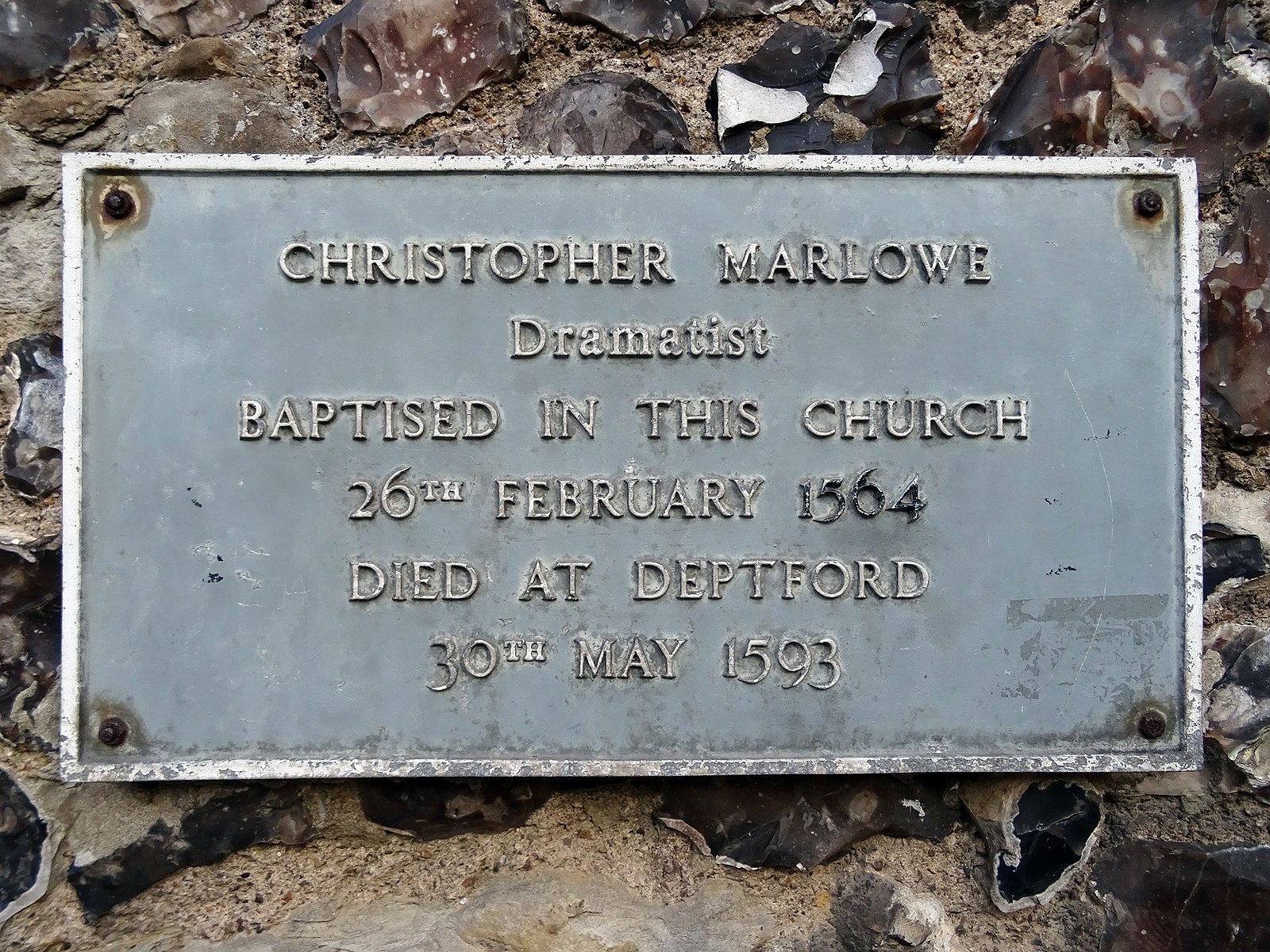Exploring Marlowe's works, life, and influence
Christopher Marlowe (1564-1593) is one of the most influential and acclaimed authors of the European Renaissance. There is sustained critical and public interest in the Canterbury-born author’s writings, biography, and influence. The Christopher Marlowe Project aims to conduct research into the shape and boundaries of the Marlowe canon, the social and cultural forces and collaborative practices that shaped his identity and works, and the performance history and reception of his writings from his period to our own.
The Project provides the intellectual framework, research agenda, and impact ambition for The Oxford Marlowe: Collected Works (Oxford University Press). The edition seeks to establish and promote Marlowe’s preserved corpus of writing for scholars, students, general readers, producers and theatre-goers, and all those interested in the cultural history of early modern England
Through a series of scholarly and public events, practice research performance workshops, and the creation of accessible education materials, The Christopher Marlowe Project team will explore the literary, social, and cultural influences on the production of Marlowe’s works, the mediation of his writings in manuscript and print, and the ways in which the meaning and significance of his writings have developed since the sixteenth century. The members of the Project team will work with researchers and theatre practitioners in the UK, Europe, and North America, and engage in vital ways with a range of collaborating stakeholders in archives, libraries, schools, and theatre companies. Some noteworthy events include:
- Marlowe Festival/Festival Marlowe (2022)
- A week-long conference in Paris and Rheims
- The European Society for Textual Scholarship: Annual Conference (2023)
- A two-day conference in Canterbury
Throughout, the Project will use Marlowe’s life, works, and posthumous reputation to enhance understanding of, and spark debate about, both early modern and present-day questions of belief, gender, race, sexuality, and social mobility. It will offer a timely reappraisal of Marlowe’s life, works, and legacy.
The project’s digital suite (in development) includes:
- Reassembling Marlowe
- a project dedicated to telling the copy-specific stories of plays and poems associated with Christopher Marlowe that were printed and published during the sixteenth and seventeenth centuries.
- Materializing Marlowe
- a cultural history project about the texts, images, and materials associated with Marlowe
- Mapping Marlowe
- a project mapping the sites and spaces identified in Marlowe’s works and biography
The Project also has close ties with multiple related research projects:
- The Marlowe Census
- a census of all preserved copies of Marlowe’s works (or works attributed to Marlowe) printed and published in the sixteenth and seventeenth centuries.
- Marlowe, etc.
- Historical editions and materials devoted to Marlowe’s plays and poems, designed to complement the Oxford Marlowe project.
- CADRE: Co-Authored Drama in Renaissance England
- a wiki-style forum for scholars to share evidence and information about the co-authorship – a term that includes practices of collaboration, revision, and adaptation – of early modern plays and other entertainments.
- Middling Culture: The Cultural Lives of the Middling Sort, Writing and Material Culture, 1560-1660
- an AHRC funded project about the cultural lives of the literate, urban ‘middling sort’ in early modern England, analysing the broad range of written and material forms they both produced and consumed.
Links to these projects, where available, are included in the banner.
